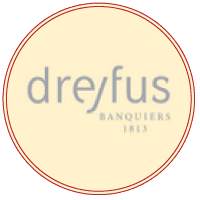The Best Swiss Banks
-
Written by Brandon Roe
- Reviewed by Mark Nestmann
-
Updated: May 6, 2024
As Featured on






Contents
- A Quick History of Swiss Banking
- American Pressure Increases on the Swiss Banks
- The Fallout
- Swiss Banks Strengths and Weaknesses
- Pros of Banking in Switzerland
- Cons of Banking in Switzerland
- Swiss Banks and Privacy
- Are Swiss Banks the Best in the World?
- Are Swiss Banks Safe?
- Here's what to look for in the Best Swiss Banks
- Field Trip: A Few Banks to Consider
- Bank Vontobel AG
- Dreyfus Sons & Co Ltd, Banquiers
- Banque Pictet & Cie SA
- Julius Bär (Baer) Group Ltd.
- EFG International AG
- How do Swiss bank fees work?
- Are You Interested in a Swiss Bank Account?
We’ve long considered Switzerland a good place to bank for the right sort of client. That’s because the best Swiss banks offer a service that is geared towards Americans looking for a conservative wealth preservation strategy.
Since the vast majority of clients come to us for wealth protection planning, it’s a natural fit.
But what does Swiss banking actually mean in practice? Who are the key players?
And most importantly, will it fit your needs?
A Quick History of Swiss Banking
Before World War I, there was nothing like the strict regulation that we have today. In fact, it was actually possible to open accounts under other people’s names. This was a level of secrecy we can only dream of today!
Naturally, this privacy attracted entrepreneurs who didn’t want to pay taxes back home, especially citizens of France and Germany, along with Americans after the US passed income tax laws in 1913.
Eventually, though, governments started to take issue with this. They pushed back against the secret Swiss banks that were helping their citizens evade taxes.
Things started to change in 1932. That was the year the French authorities raided a Swiss bank’s French office and ultimately exposed more than 1,000 French clients evading taxes.
In response, Switzerland passed a law in 1934 that made it illegal to reveal client identities to foreign governments. This was a marketing coup — clients could feel even safer that there was a law backing their right to privacy. It further increased the trust in Swiss banks and, in a very uncertain time, helped to spur the growth of the Swiss banks.
After World War II, other countries started to try and copy what Switzerland was doing. They adopted similar bank secrecy laws to attract investments. And when we think of the stereotypical Swiss bank — secret, exclusive and controversial, that’s what many people think of.
And for decades, that system worked. But it wouldn’t last forever.
American Pressure Increases on the Swiss Banks
For obvious reasons, governments in high-tax countries were never happy with the idea that there was a place in the world where clients could safely hide their wealth from their home government.
America especially so. But unlike most other countries, America had the leverage to do something about it — the global financial system and the currency at the heart of it.
After years of pressure, the US government was able to successfully get the Swiss to give up its US account holders. Wegelin & Co, a nearly 300-year-old Swiss bank that had helped Americans evade taxes, ultimately closed its doors. But they weren’t the only bank caught up — UBS and Credit Suisse were also punished, as well as other banks.
It’s worth noting that the Swiss banks hadn’t broken any Swiss laws. But the US government, by leveraging the global financial system against them, were still able to penalize these banks.
And because of this leverage, Uncle Sam could force the banks in other countries to comply with US laws. If they didn’t, they would face a punitive tax on their US earnings — a fatal blow to any international bank.
The primary tool used to achieve this leverage is the Foreign Account Tax Compliance Act (FATCA). It forces foreign banks to report information about their US clients to the IRS.
Other countries eventually followed up with the Common Reporting Standard (CRS).
Both sets of regulations force banks to release information about their customers to their home governments. It makes it virtually impossible to hide an offshore account from the tax man.
(Something it should be very clear we do not suggest trying to do.)
The Fallout
Since the passage of FATCA and the CRS, banking internationally has become very difficult.
This is especially true for American clients. The collapse of Swiss banking privacy (to government reporting) caused a shockwave throughout the system.
It caused panic throughout the international banking system that catered to US clients. And it caused most banks to give up US clients entirely — unless they had a really good reason to open an account (a residency permit, for example).
Even banks that promised to keep US clients had a problem on their hands in the form of compliance. Effectively working for free for Uncle Sam has a direct cost on their business. Many banks overseas — and especially in Switzerland — rely on client fees to make a profit.
(As compared to the American system where bank fees tend to be much lower. Banks have other sources of revenue including more aggressive lending and selling client information to marketers.)
Those compliance fees have to be paid for somehow. And because there’s a limit to the fees a bank can charge, the Swiss banks have responded by dramatically raising minimum balances US clients must hold before they can access bank services.
In most cases, $1,000,000 is the practical minimum. In some of the safest banks that have virtually no lending risk, the minimum can be $5,000,000 or even more.
This has led to Switzerland being called a snobby “country club jurisdiction” that probably doesn’t want you unless you’re filthy rich.
But, if you’ve worked hard for your money and you want to protect it, why wouldn’t you want the “country club”?
Yes, Swiss banking has changed greatly over time. But it’s still safer than almost anywhere else. And, just as importantly, they’ve kept their doors open to US clients. Even if those US clients need to have a good nest egg to get started.
Swiss Banks Strengths and Weaknesses
Switzerland is one of the safest, if not the safest place to bank nowadays. But there’s no such thing as a perfect jurisdiction. Like every place, there are pros and cons.
Pros of Banking in Switzerland
- Stability and Security: With a few exceptions, Swiss banking is very conservatively run. They don’t offer any sort of American-style aggressive lending. The banks generally maintain stronger balance sheets.
- Privacy: Although FATCA and the CRS have made it impossible to keep your assets private from the government, Swiss banking privacy still exists for everything else. You can safely assume that short of a court order in the US, assets you move to Switzerland remain private.
- Cater to the Needs of the Wealthy: Switzerland has a vibrant ecosystem of expertise that caters to the wealthy — from private banks to investment advisors, precious metals repositories to art and wine experts.
- Innovative Crypto Sector: The Swiss took crypto seriously and were among the first to develop regulations around it. Along with a low tax system, it’s created a vibrant crypto ecosystem in the canton of Zug (a 25-minute train ride from the center of Zurich).
- The Swiss Franc: Switzerland’s currency is generally considered one of the world’s safest currencies thanks to a very (some would say boringly) conservative approach to finances. For clients looking for stability, it never hurts to keep a portion of your cash in Swiss Francs.
- A Global Approach: Switzerland is a small country and in order to succeed, Switzerland has been forced to look internationally. Over centuries, it’s become part of who they are. This international perspective serves us well when judging opportunities and analyzing threats.
- Highly Regulated: Unlike many of our colleagues in this space, we prefer clear rules on what’s kosher and what’s not when it comes to finances. We may not like all the rules, but we like knowing what they are. If you’re looking for stability and safety, you want a rules-based place too.
- High Service Standards: Outside of the US, banking service standards can be slow and painfully complicated. By and large, Swiss bankers are quite professional and efficient.
Cons of Banking in Switzerland
- High Costs: Banking in Switzerland is not cheap compared to other places. As a hotelier once remarked to me on my first trip to Zurich more than 15 years ago, “Nothing is free in Switzerland.” You can expect to pay for anything needed to maintain your account in the country.
- High Minimums: Unless you have residency in Switzerland, you’re limited in the number of banks willing to take on your account. The ones that will have high minimums — $1,000,000 is pretty typical; the safest can ask for $5,000,000 or even more.
- Regulations: When it comes to foreign banking, opening an account can be a slog. Applications are long and complicated. It’s fine once you actually get an account opened, but the opening process tends to put people off.
- Limited Investment Returns: Because Swiss asset management is conservative by nature, it’s rarely a good place to try and beat the market. There are exceptions of course, but we generally recommend that, for clients looking for quick profits, stay in the US. Switzerland shines for clients that want a safe and steady hand that will help preserve their purchasing power.
- Reduced Privacy: Because of regulations around FATCA and the CRS, you can’t expect to be able to keep your financial accounts secret from the US government.
- Accessibility and Convenience: Doing business in Switzerland can be irritating for Americans. Swiss bankers maintain Swiss banking hours. It can be a challenge for US client — especially those in the West — to be able to reach their banker at a reasonable hour. That said, most of this has been addressed with the shift to online banking in the last 15 years.
- Client Acceptance Policies: Because of compliance and regulations, Swiss banks can be very picky about who they accept as clients. If you call one up and say you want to open an account, and you don’t have a really good reason why, they aren’t likely to take you on.
Swiss Banks and Privacy
We regularly have clients ask us if it’s possible to use an offshore bank to hide money.
In times gone by, the answer was yes. You could evade taxes. It was a terrible idea, but possible.
But thanks to the Foreign Account Tax Compliance Act (shortened to FATCA and often written incorrectly as FACTA), as well as other regulations like the Common Reporting Standard (CRS), and the introduction of the Tax Information Exchange Agreement (TIEA) system, you can assume there is no longer any privacy when it comes to tax related issues.
The main benefits of moving some of your assets overseas include diversification, asset protection, protection against a declining US dollar, and access to opportunities not available at home.
That said, even if you can’t hide money from your home government, you can from everyone else.
Banking privacy is still very important to the Swiss. Even bank employees are limited in the amount of client information they can access. It’s the same for companies like ours who work with Swiss banks.
For example, we’ve been working for years in helping clients access different Swiss services — from Swiss annuities in the 1990s to asset management and banking today.
Every quarter we get reports on the clients we send over to our partners. This helps us make sure that the assets being managed are working within the plan we create for them.
Except that clients names are never listed. They are known only by numbers internally.
We asked about this once and was told that it was common practice that only the partners actually know who the clients are. Their information is held in printed form in a secure vault. Only their name, their service ID number, and certain passcodes (for verification purposes) are accessible by employees.
Now granted, this was some years ago, and with changes in technology, it might not make sense to do that anymore.
Still, clients are referred to by their ID number in our reports.
Are Swiss Banks the Best in the World?
It depends on who you’re asking and what’s needed.
When we work with clients in our Private Wealth planning service, we always start by getting a clear picture of what the client wants and what he doesn’t. We then develop a plan based around their needs.
For clients without a lot of money, or who just want to test things out with a few thousand dollars, Swiss banking is not a good option.
But we tend to work with seven and eight-figure entrepreneurs, investors, and business people who have worked hard for what they have, and want to protect it. They’ve made their money and, although they like the idea of making more, they aren’t willing to risk much to do it.
We would never put them into a risky bank with easy compliance and low minimums.
That’s because their money’s just not safe. It’s penny-wise and pound foolish.
For such individuals, Switzerland really is the best banking option.
Are Swiss Banks Safe?
When we talk about the safety of Swiss banks, we’re not talking about any physical system. It’s the robust regulatory system behind these accounts that makes them of interest to clients looking for wealth protection.
Swiss banks have a reputation for strict banking safety measures. FINMA, the Swiss Financial Market Supervisory Authority, oversees the banking sector. This ensures strict adherence to financial regulations, protecting account holders’ interests.
Swiss banks must keep high levels of cash on hand. This means they’re ready to meet their obligations no matter the economic climate.
With a few notable exceptions, Swiss banks have historically operated very conservatively. They like stability and safety over high-risk, (maybe) high-reward ventures. This suits the wealth preservation goals of many of our clients.
Beyond the individual bank level, Swiss banking regulations also offer strong protection to account holders.
One of the keystones of this protective shield is the depositor protection scheme. In the unlikely event of a bank’s failure, this scheme guarantees that account holders can recover up to the first 100,000 Swiss francs (roughly $110,000) held in cash. Although not as high as the FDIC’s limit of $250,000 in the US, the Swiss program is much more stable.
Here's what to look for in the Best Swiss Banks
While Swiss banking might be safe, not every bank is the same. You still need to do your homework to ensure it meets your needs. Here are a few things to look for:
Strong Financial Health
A good sign of a stable bank is its Tier-1 capital ratio. We generally look for a ratio above 20%, it shows that the bank is solid and can handle losses well. You can find this info in the bank’s yearly report.
Proven History
A long history shows a bank can handle different economic ups and downs. Banks with many years of operation are usually more reliable and safer.
Serves US Clients
Even though Switzerland is open to US clients generally, many banks still won't take US clients directly (at least, not without a residency permit). The ones that will are generally private banks.
Customer Service
Nothing can be more annoying than not being able to get help when you need it. While most Swiss banks offer courteous, professional service, it doesn't always jibe perfectly with every US client. Before opening an account, get some feedback and trust your gut on whether any given bank can offer the service you expect.
Field Trip: A Few Banks to Consider
The following are a few banks that take American clients. We know because we have clients that work with all of them.
The purpose of this list is to give you a starting place to get to know what’s out there. However, although you’re welcome to try, it’s unlikely calling them up and asking for an account will go anywhere.
More likely, you’ll have to work through an intermediary — a service we provide to clients, but plenty of other professionals do as well.

Bank Vontobel AG
Based in Zurich, Vontobel was founded in 1924 in Zurich, Switzerland, by Jakob Vontobel. It started as a small brokerage firm and has grown into a popular bank that still serves US clients.
Learn More: https://www.vontobel.com/

Dreyfus Sons & Co Ltd, Banquiers
Another Swiss bank based in Zurich, Dreyfus positions itself at the upper end of Swiss banking. It’s minimums are high but so is its core capital ratio — more than 27% in its last annual report.
Learn More: www.dreyfusbank.ch

Banque Pictet & Cie SA
Founded in 1805, Pictet is one of the oldest and most well-known of the Swiss private banks. They also position themselves at the upper end of the market.
Learn More: www.group.pictet

Julius Bär (Baer) Group Ltd.
Founded in 1890 and headquartered in Zurich, Julius Bär is well known outside Switzerland for their wealth management services. They have been in trouble with US authorities in the past, but have been able to work it out and continue to serve US clients to this day.
Learn More: www.juliusbaer.com

EFG International AG
By Swiss banking standards, EFG is a baby. It was founded in 1995 and since then, has grown quickly, largely by acquisition. However, it has offices in Miami and Portland, Oregon. For some clients looking to get away from the US system, that makes it less attractive.
Learn More: www.efginternational.com
Why aren't UBS and Credit Suisse on this list?
When most people think of specific Swiss banks, the “Two Big Banks” usually come to mind – UBS and Credit Suisse. Prior to FATCA, both were popular options for US clients.
But, after both of them were caught helping US clients evade taxes back home and being forced to pay millions of dollars in fines, they substantially cut back on their involvement with US clients. Then in 2023, UBS acquired Credit Suisse in the largest bank merger in Swiss history. You can still work with UBS, but it will generally be through a network of US-based advisors.
If you’re an American looking for true Swiss asset management, you’ll need to look elsewhere.
How do Swiss bank fees work?

Transactional Fees:
Fees may be charged for specific transactions such as buying or selling stocks, bonds, or other securities. These are usually either a flat fee per transaction or a percentage of the transaction value.

Custody Fees:
These are charged for holding and maintaining securities in an account. They cover the administrative costs of safeguarding the assets. Note that some banks also have minimum custody charges.

Service Fees for Reporting Requirements:
A service fee will be added for the issuance of tax documents needed to comply with US regulations. This covers the administrative costs of preparing and providing documents necessary for US tax compliance.

FX Margin Fee:
Most banks may apply an FX Margin Fee, which is a charge on currency conversions within the bank. It covers the bank’s cost and margin in converting currencies, which can vary based on the transaction size and currencies involved.
Additional Notes:
Some banks may charge regular service charges instead of a custodial fee like in the US. Yet, in our experience working with Swiss banks, this has not generally been the case.
We are not aware of any Swiss banks that accept US clients for simple banking unless the client is willing to deposit a large amount, often upwards of $5,000,000.
Fees are generally higher in Switzerland because the sector has to earn its money directly from clients. Unlike in jurisdictions like the US, where banks may lend more and to riskier borrowers, and where information on account holders can be sold to marketing firms, Swiss banks focus on providing high-quality, fee-based services. This explains the higher fee structure.
Are You Interested in a Swiss Bank Account?
Over the years, we’ve developed a specialty in helping US clients move assets to Switzerland. As part of a wealth protection plan, we can help you too.
To learn more, simply book in a free no-obligation call with one of our Associates.
About The Author
Need Help?
We have 40+ years experience helping Americans move, live and invest internationally…
Need Help?
We have 40+ years experience helping Americans move, live and invest internationally…
As Featured on







